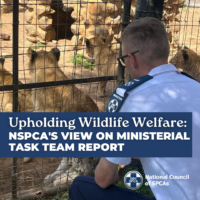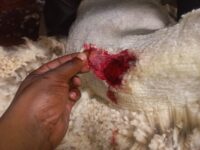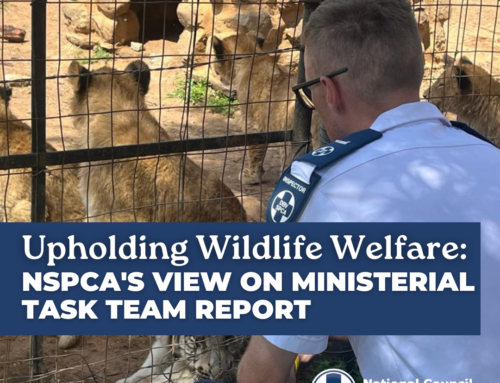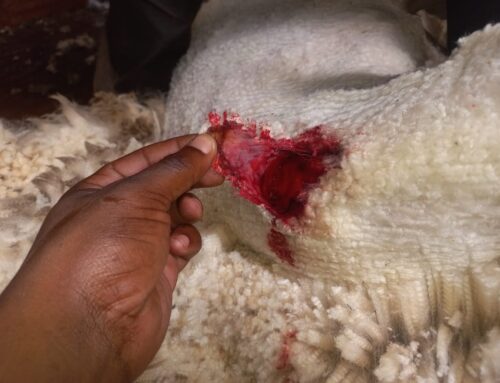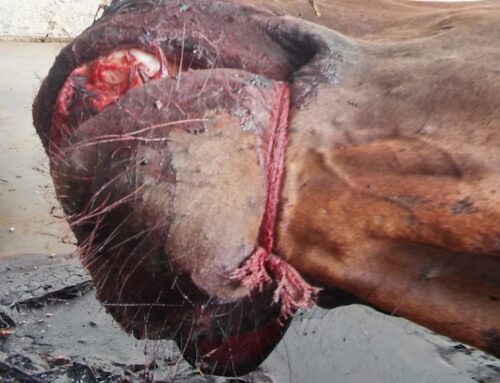“I have decided that Lisette Withers and four others should be prosecuted for contravening the Animals Protection Act (Act 71 of 1962) as evidenced in Alexandria CAS 66/05/2014.”
Advocate SK Abrahams of the Office of the National Director of Public Prosecutions (DPP) in a communication dated 18 July 2016 to Isabel Wentzel, the Manager of the NSPCA’s Wildlife Protection Unit.
The criminal charges had been laid two years earlier by the NSPCA after receiving horrific footage depicting the cruel and abusive training methods employed to control and train baby and young elephants for their future, captive lives in the elephant-based tourist industry.
The footage had been taken on the premises of Elephants of Eden situated in the Eastern Cape – a property defined as a safe haven for elephants and owned by the same entities who own the Knysna Elephant Park.
The visuals show elephant calves and juvenile elephants being chained, roped and stretched, shocked with electric cattle prods and hit with bull hooks – all methods used to force these gentle giants to submit to the will of their trainers and handlers. NSPCA Senior Inspector Wendy Willson stated when the matter first came to light that “The elephants show signs of crippling injuries with severely swollen legs and feet, debilitating abscesses and wounds resulting from the abusive use of ropes, chains, and bull hooks.”
However the NSPCA was advised in October 2015 by the Grahamstown Director of Public Prosecutions (DPP) that the case would not proceed. The NSPCA queried this and was advised in November 2015 that the DPP remained unpersuaded that the methods constituted cruel treatment and/or caused unnecessary suffering to the elephants.
Undeterred, the NSPCA pursued the matter by approaching the Office of the National Director of Public Prosecutions and the outcome, as stated above, has been welcomed.
“It is important that this case is heard, tried and concluded through our judicial system so that once and for all, there can be clear parameters of what is – and what is not – acceptable with regard to training methods and also in the tourism industry,” stated Isabel Wentzel.
The tide is turning internationally against tourist facilities which offer interactions with wild animals. Our years of advocacy, investigation and placing before the public the truth behind elephant rides or elephant-back safaris is now being rewarded through public awareness, pressure and impact.
Tour operators including Thompson Safaris will no longer bring tourists to reserves where elephant-back safaris take place.
Camp Jabulani in Hoedspruit has announced that from April 2017 it will no longer offer elephant riding to tourists but will rather promote the viewing of elephants in their natural state and environment.
Manager of the NSPCA’s Wildlife Protection Unit, Inspector Isabel Wentzel, believes that factors influencing tourists especially from overseas, tour operators and public opinion generally include the NSPCA exposé of cruel, inhumane and totally unacceptable training methods in South Africa.
“Until we published photographs and irrefutable evidence that this was happening in our own country, there was a misunderstanding. It was generally thought that such methods were only used in Asia. Not so. From then on there was a ripple effect and a general reaction against elephant riding which continues and the consequences are now being felt by the industries who operate them.”
Donate to the NSPCA
If you are as passionate about animals and their well-being as we are, consider supporting our causes by donating here.


